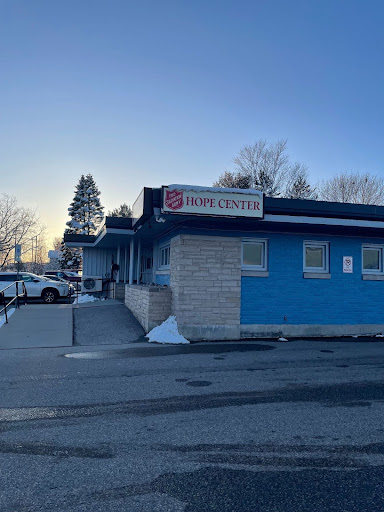The Un-Housed population in America has increased steadily. Across the nation, cities have seen 8000 more people enter homelessness then leaving it, From 2017 to 2020. The preventive methods in place aren’t effective, and don’t address the real issues regarding people experiencing homelessness.
The U.S.C.H or the United States Council on Homelessness, has proposed a fix to the currently rising homelessness problem in america. The U.S.C.H proposed ¨Strategies such as increasing availability of and access to affordable and accessible housing and housing assistance and addressing housing discrimination that perpetuate disparities are both critical to preventing homelessness.” These prevention methods are implemented by the U.S government to combat the homelessness, and provide a plan to both give prevention on both sides of homelessness. The already homeless, and the potentially homeless. This connects back to whether or not drug prevention is the best way to combat homelessness.
The rise of homelessness can be attributed to the overall increase in mental health issues in America and the addiction to drugs. Even some sources stated that it was an individual’s circumstances, leading to the homelessness. From the article “A critical Analysis of America’s homeless crisis,” by Ned Resnikoff, a member of the YIMBY movement , a movement that advocates for an increase of affordable housing, and a 15 year researcher, he states a variety of reasons “that cause a particular person to become homeless. Drug addiction is a common precipitant, but so are fleeing domestic violence, becoming unemployed, or getting hit with unexpected medical bills.” He offered the idea that participants of domestic abuse can lead them to being homeless, showing that worldly experiences cause a person to fall into a situation where they cannot afford housing. Unexpected financial burdens, like medical bills, or increase in rent are other situations that can cause a person to become homeless.
The unfortunate relation of the climate has been quoted as another reason that we find people living on the street rather in a home or shelter. Because of places that have harsher weather, they tend to be more occupied to house people within a shelter,
but moderate climate areas are lacking in housing development. “cities with more hostile climates tend to have proportionally fewer unsheltered people and more sheltered but un-housed individuals. That is likely because colder cities tend to build more shelters in order to prevent their un-housed residents from freezing to death; and un-housed people, conversely, are more likely to seek out even substandard shelter when the alternative is potentially fatal.” (Ned Resnikoff). Cities that have more mild climates should provide more care for the un-housed population, to offset the higher population in more aggressive climate areas/cities. The places with harsher climates are more occupied to handle the unhoused population because they understand what they deal with, and prepare for their climate. Allowing for a person to be able to not have to deal with the weather on top of being homeless.
A commonality of the contributors for the homeless problem is poverty. State in the article “Homelessness,” by Britannica. “ Homelessness takes many forms, but most homeless people have one thing in common: poverty.” The connection between the different aspects that people believe that causes homelessness is poverty or being unable to afford things in life. The homeless population has been categorized by criticalness. “The fortunateness of people having access to places that give them assistance has helped some people’s situation, but they are unable to help all. However, the Homeless Persons Act, promised assistance only to homeless people who were considered a “priority.” This meant that homeless families with children often received help while homeless individuals were turned away.” (Britannica). The term ” priority” is miss-leading because a person in an homelessness is in a state of emergency, due to the fact that they don’t have a living situation for themselves. But a family or a person with children have more dire risks involved with being homelessness than the average adult does. Being in poverty makes living difficult and some people develop mental health issues from the stressors of life. This causes people to need something to fall on to relieve them, and for some its drug use or addiction.
Most people believe that homelessness is brought by drug abuse and or other problems. But some people believe that it’s the other way around or not even the case. The director of the Salvation Army in Stevens Point WI, Ms. Leigh Ann Trzinski, said that “People experiencing homelessness use drug abuse as ways to help with PTSD, medical health issues and mental health issues.” She also said that most people don’t start off with an addiction, but develop it as a means of an escape from their situation. Another source, “A critical analysis of America’s homeless crisis,” stated “The rise of homelessness in these cities has been accompanied by a commensurate rise in public drug use, along with people publicly experiencing very severe mental health emergencies.” It ties into the question whether homelessness causes increased drug abuse or if drug abuse causes homelessness. The trauma of living on the streets causes people to have or develop mental illnesses.
Overall, everyone has experienced someone troubled with being homeless and it has become a societal issue. The United Nations has deemed having a living habitat, suitable for human life, is a human right or a violation caused by unjust inequalities in income and wealth. And someone being homeless is considered a humanitarian crisis. To combat this issue politicians consider whether it should be addressed locally, at the state or national level. But more importantly the average person has the ability to become a mentor or a guide for someone experiencing a hard time in their life. Stevens point has eleven different alderpersons. They sit on the city council, and help with policy making. And the development of new projects. They would be a great person to reach out to, to help fight the growing issue within our community.































































